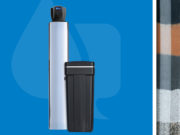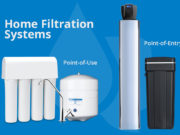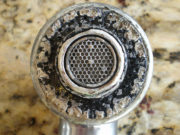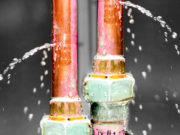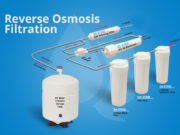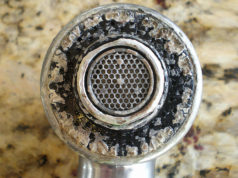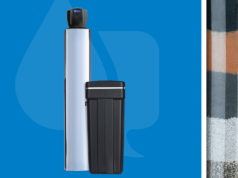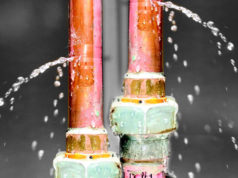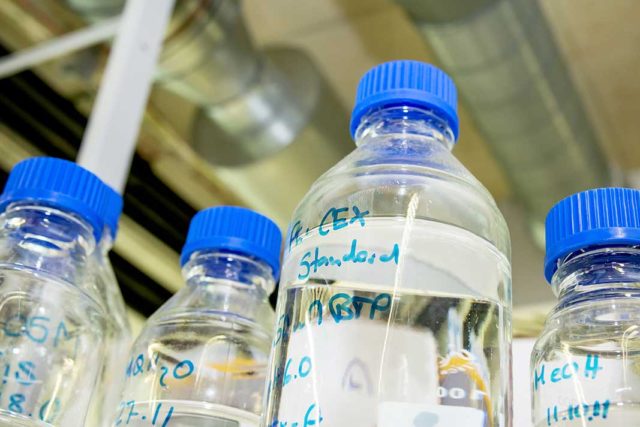
Good question, and it might not just be pure water
The U.S. Food and Drug Administration (FDA) regulates bottled water used for drinking. Although required to meet the same safety standards as public water supplies (utility water), bottled water does not undergo the same testing and reporting as utility water.
bottled water does not undergo the same testing and reporting as utility water
Bottled water quality varies among brands due to variations in the source water, costs, and company practices. There are two main kinds of bottled water: repurposed municipal water and natural spring.
Municipal water is treated by reverse osmosis. Some brands that sell municipal water add trace minerals to reverse osmosis treated water for flavor. Natural spring comes from a naturally occurring source.
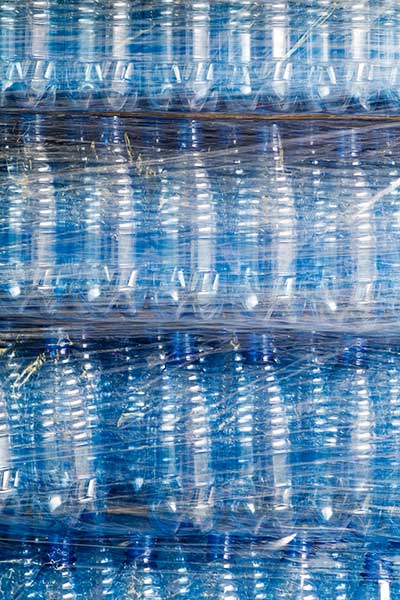
Plastic Concerns
Bottled water should be stored in a cool, dry place, away from solvents in the garage, and definitely out of the sun. Extreme heat fluctuations (like in your car) over time, can cause the chemicals in the plastic to leach into the bottled water, changing the taste of the water.
- Learning and behavioral problems in children
- Altered immune system function
- Early puberty in girls and fertility problems
- Decreased sperm count
- Prostate and breast cancer
- Diabetes and obesity
- Testicular atrophy or structural abnormality
- Liver cancer
An Alternative and Convenient Solution
One way to be more environmentally conscious and save money is to install a reverse osmosis system under your sink. You’ll get the same treated municipal water you’re buying now, without the waste, transportation and storage issues.
Learn more about Reverse Osmosis systems in this article.
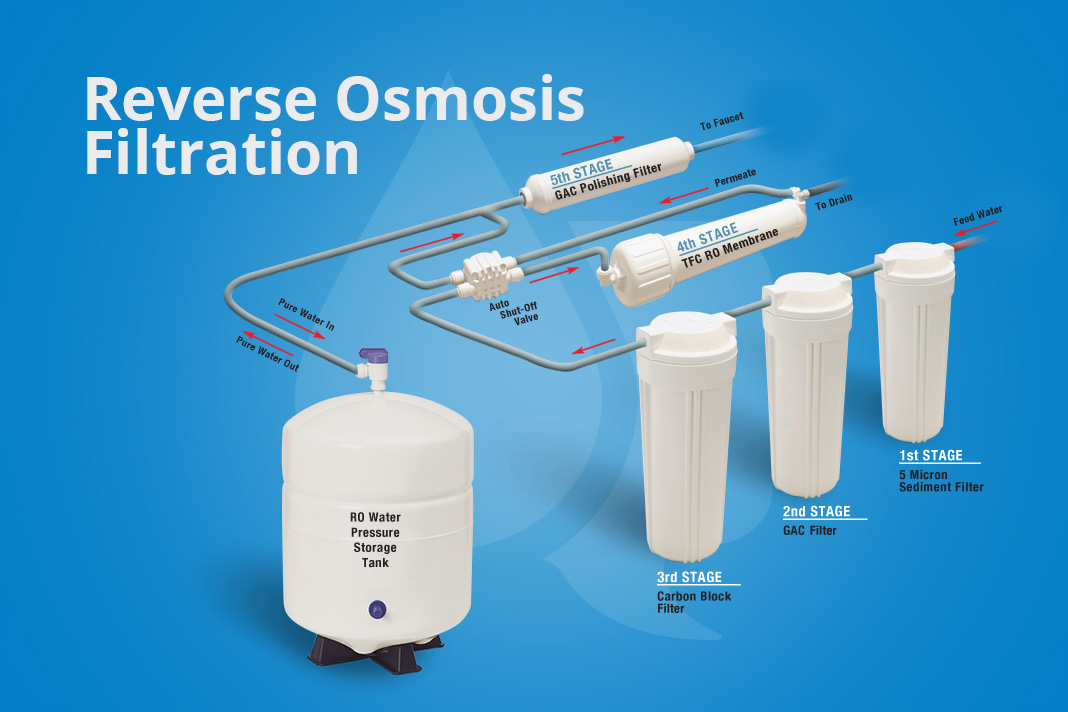
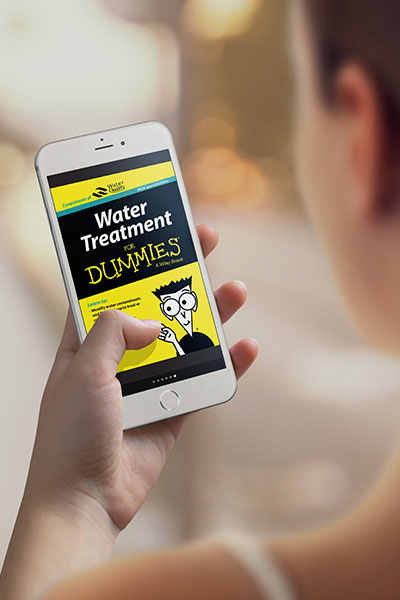
Want More?
Water Treatment for Dummies
is available as an e-book that you can read on your smartphone. It’s packed with useful information about common water problems and how to solve them.
It’s FREE, and you can get your copy here.


